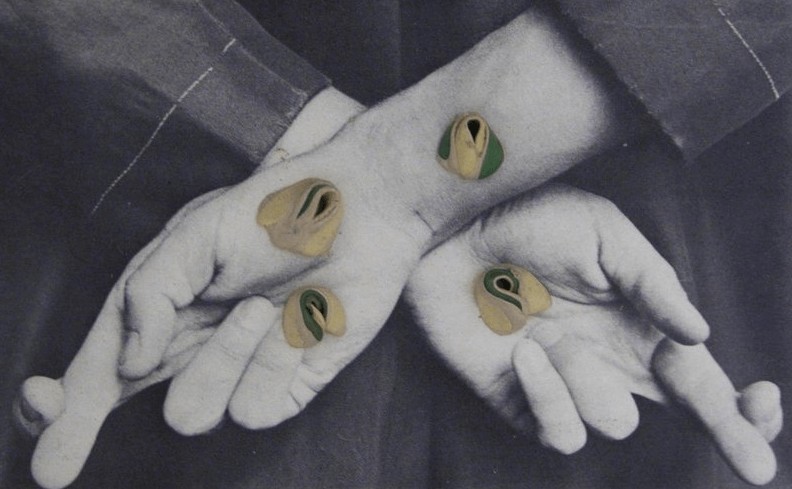What It Means to Be a Whore: Why We Try to Save Sluts From Themselves

art by Hannah Wilke
The advent of summer brings with it many things—days that seem to stretch on forever before sliding into gentle nights; hours spent lingering on rooftops and stoops and backyards, swatting away mosquitos and reaching for fireflies; cold beer on the beach and colder gin and tonics on the roof. These are the things that make summer so appealing, the things for which we spent this long, cold winter lying in wait. But for women, there is something else that tends to happen as the temperatures get higher and extra layers of clothes seem superfluous at best, and a burden at worst; for women, summer is also the season of the slut.
There are the notes home from school, missives mandating student dress codes and forbidding such basic clothing items as tank tops and “too short” shorts. There are even some universities which offer adult women guidelines for what to put on their own bodies. There is the almost constant barrage of street-side commentary for those who dare to wear clothing appropriate to an 85-degree day. And the summer’s verbal onslaught differs from that of other seasons in both its quantity and quality, because implicit (and frequently explicit) in the comments flung at women is the sentiment that, by dressing in a certain way, women are complicit in these attacks. Summer is the time when women are told to cover up, when women are gawked at and catcalled when they bare their shoulders or their legs (and also, let’s be honest, even when they don’t), and when women are most often told they’re asking for it, begging for it, getting what they deserve.
Of course, this type of attempt to tamp down women’s autonomy and to make them a party to their own degradation is not exclusive to the summer. It’s, you know, totally a year-round event (wheee!). But it has seemed of late—especially with the recent Washington Post debacle in which columnist George Will claimed that rape victims enjoy a “coveted status” of “privilege,” followed by another column exhorting women to get married to their “baby daddies” and stop taking “lovers” so that they can better “protect themselves” from domestic violence—that there is an even greater abundance than usual of examples of women being told that the best way to save themselves from either being seen as a slut (or, you know, due to all those “lovers,” actually being a slut) is to follow the advice of a bunch of (usually male, not infrequently white) patronizing people who only have the women’s best interests at heart.
But why? Why are so many people (including women, of course) trying to save “sluts” from themselves? And why are the ways in which women are told to save themselves (i.e. dress more conservatively, marry before having children, don’t get divorced, avoid engaging sexually outside of marriage) not only completely aligned with conservative dogma, but also a means of placing the responsibility for women’s safety on the shoulders of women, rather than those that attack them? If commentators like George Will were giving advice simply as a way of wanting to protect women from being assaulted, because they valued women’s safety, it would be possible to engage in a larger dialogue, one in which it could be emphasized again and again (until, you know, it started to sink in a little bit) that victims are (by definition!) not to blame for the crimes that befall them, and should not, therefore, be blamed for said crimes.
But that, of course, would be missing the point of what it means to be a slut or to be a whore. Or, at least, what some people think it means. What it means to be a slut or a whore goes beyond singling women out for being to blame for any and all misfortunes that befall them (see: Terry Richardson’s accusers). The reason so many people take offense at the idea of the so-called devaluation of women due to sexual assault (or even just increased amounts of sexual engagement) is because, to many people, a woman’s worth is tied up with how much they are valued by society in general. In other words, the more free a woman’s behavior, the more diminished her status is in general, and to men specifically, thus lowering their own sense of self-worth in turn. This, then, is why conservatives care about what a woman wears and how she is treated—it’s not because they care about what happens to women, but only because they care about what happens to themselves.
Follow Kristin Iversen on twitter @kmiversen
You might also like 



















